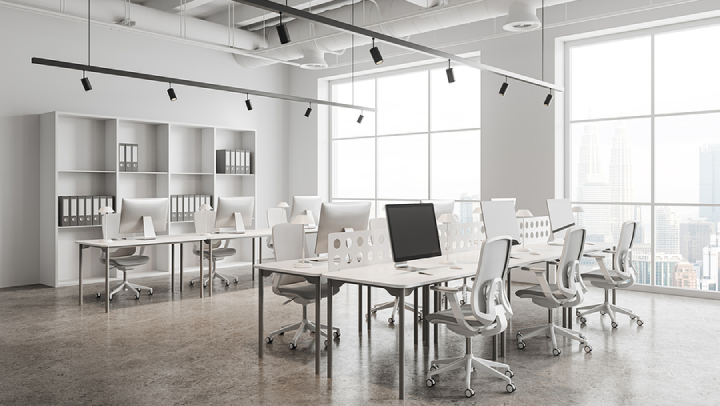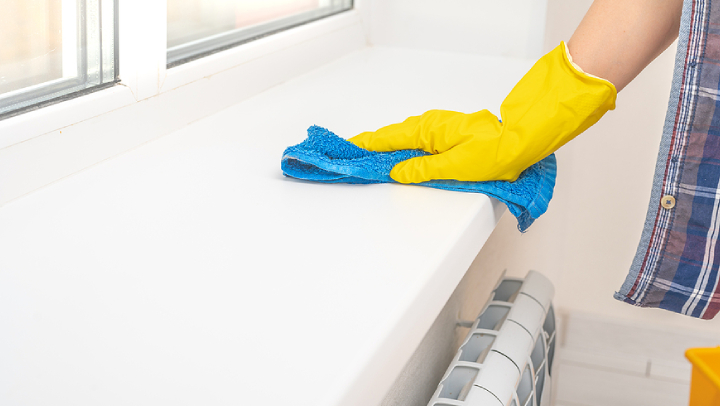Open office plans have become a popular layout choice across many modern workplaces. The open concept fosters collaboration, boosts communication, and allows flexible use of space. While the benefits are undeniable, the shared nature of these layouts also brings a hidden challenge: cleanliness.
With employees working side by side, often sharing desks, equipment, and common areas, maintaining a clean and hygienic environment requires more attention and consistency. An open office may look sleek and minimal, but it demands a higher standard of cleanliness to truly function well.
Shared spaces increase the spread of germs
In traditional office layouts, employees typically have their own workstations or cubicles, which limits direct physical interaction. Open office plans, however, break down these barriers. People touch the same desks, keyboards, phones, and printers daily. It only takes one person with a cold or flu to leave traces of bacteria or viruses on shared surfaces.
Singapore’s humid climate also allows germs to linger longer in moist environments, especially on high-touch areas like door handles, pantry counters, and lift buttons. Regular sanitisation of these common points is essential to minimise the risk of illness and reduce employee absenteeism.
Pantry and breakout areas require constant attention
Open offices often include shared pantry spaces or breakout areas where employees eat, have casual discussions, or take breaks. These spots are prone to spills, crumbs, and food odours, which can quickly build up if not cleaned frequently.
Without walls to contain mess or odour, any lack of hygiene in the pantry can affect the entire office environment. Frequent cleaning, especially after lunch hours, helps to maintain a pleasant and professional atmosphere. It also shows respect for the collective space everyone shares.
Open layouts expose dust and dirt more easily
One overlooked downside of open offices is visibility. With fewer partitions and more open sightlines, any clutter or dust becomes much more noticeable. This includes dirt on glass partitions, coffee stains on shared desks, or dust on air vents.
Regular professional cleaning services are necessary not only to remove these visual distractions but also to uphold workplace standards. A clean environment can contribute to better focus and productivity, especially in spaces designed to be minimal and streamlined.
Carpets and upholstery accumulate dirt faster
Many open offices feature wall-to-wall carpets or upholstered furniture to create a cosy, comfortable vibe. While this adds to the aesthetic, it also creates more surfaces for dust, allergens, and bacteria to hide. When not cleaned regularly, carpets can trap odours, food particles, and even mould spores, especially in our humid weather.
Routine carpet shampooing helps to maintain both appearance and hygiene. Clean carpets reduce allergens, enhance indoor air quality, and improve the overall atmosphere in the office. Given how much foot traffic open offices receive, floor cleanliness can’t be overlooked.
More employees means more mess
Open office plans typically accommodate a higher number of staff within a given space compared to traditional cubicles. With more people using the same space, the build-up of dirt and waste naturally increases. Paper scraps, snack wrappers, coffee spills, and dust gather quickly if left unattended.
Without regular cleaning, this accumulation can become overwhelming and affect morale. Employees are more likely to take pride in a workplace that is tidy and well-maintained. A clean office can also leave a good impression on clients and visitors.
Cleaner air supports better health and focus
With open layouts, air circulation is shared across a wider area. If dust and allergens accumulate, they can circulate throughout the entire office via air-conditioning systems. Poor indoor air quality can lead to symptoms like headaches, sinus issues, or fatigue — all of which negatively impact productivity.
Regular deep cleaning of air vents, carpets, and furniture plays a part in improving air quality. It’s not just about surface-level cleanliness but creating a healthier indoor environment overall.
Frequent cleaning supports a hybrid work culture
Many companies have embraced hybrid working models, where employees rotate between working from home and working from the office. This means office spaces are used more flexibly and intensively during peak days. Cleaning schedules need to be adjusted to match this rhythm.
High-traffic days call for more thorough cleaning to reset the office for the next group of users. Relying on once-a-week cleaning routines is no longer enough. With flexible work arrangements, the cleaning routine must also be agile and consistent.
Cleanliness is part of workplace branding
First impressions matter, even internally. A clean office is not only pleasant to work in but also reflects company values. Employees associate a well-kept workspace with professionalism and care. It sets the tone for respect and accountability within the team.
A commitment to cleanliness also signals to clients and stakeholders that the company values detail, hygiene, and organisation. This matters greatly in sectors like finance, tech, or healthcare, where attention to detail is part of the business DNA.
Conclusion
Maintaining cleanliness in an open office setting isn’t just about looking good — it’s essential for health, productivity, and company culture. At Abba, we understand the unique cleaning challenges that come with open-plan offices. Our tailored solutions ensure your workspace stays spotless, inviting, and ready for collaboration at any time.


